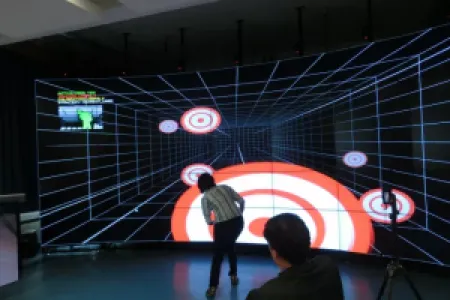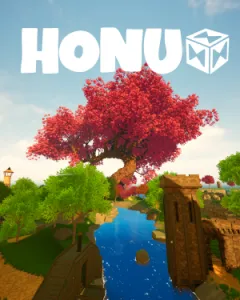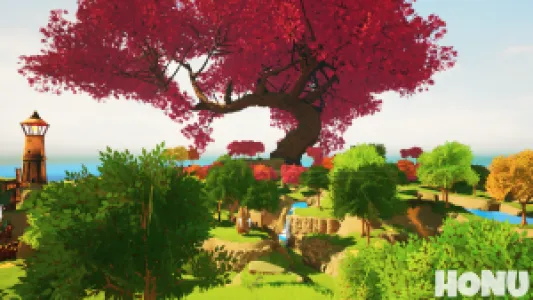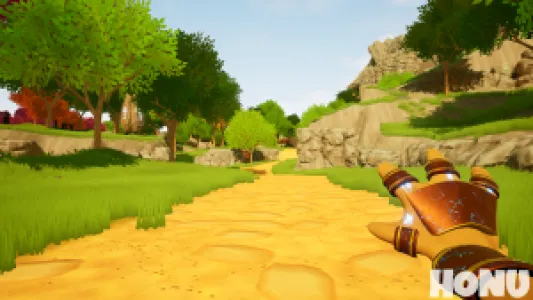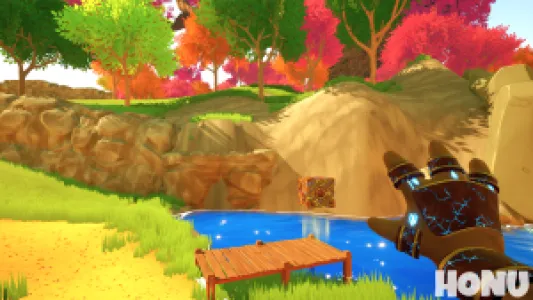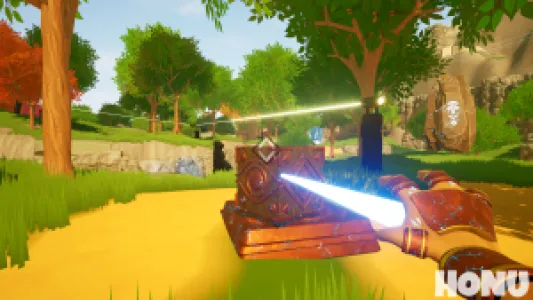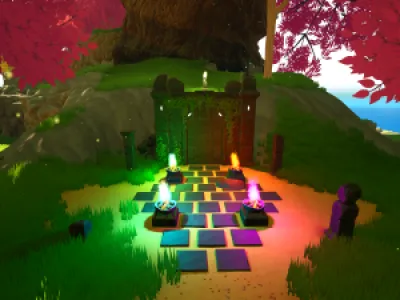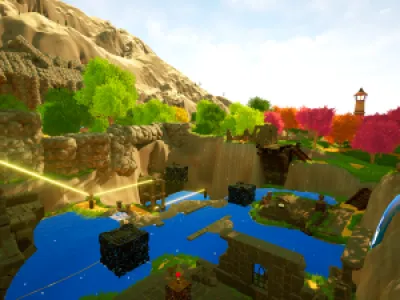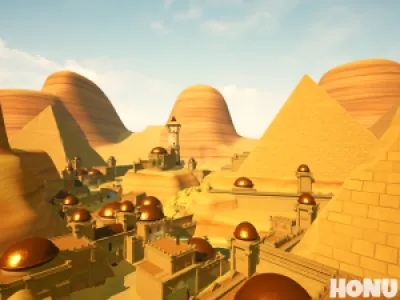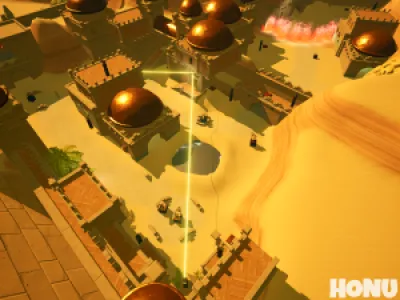University of Applied Sciences Bonn-Rhein-Sieg (H-BRS)
Booth number: HALL 2 - 02-C02c
www.h-brs.de/en/ivc
About us
The Institute of Visual Computing (IVC) at Bonn-Rhein-Sieg University of Applied Sciences (H-BRS) is a research institute focused on cutting-edge technologies in computer graphics, human–computer interaction, computer vision, visualization, and augmented, mixed, and virtual reality. IVC conducts both foundational and applied research and is deeply engaged in knowledge transfer, industry collaboration, and hands-on, high-quality teaching.
The IVC is closely linked to the Department of Computer Science, which runs the Master’s programme in Game Technologies (MSc). This English-taught program trains students to become experts in XR, AI, real-time rendering, motion capture, and interactive systems development. Students gain practical experience through game jams, industry workshops, and international collaborations, including a mobility semester in Japan. The programme also maintains a strong presence at Gamescom and other major industry events.
At the Tokyo Game Show, IVC presents its educational and research activities, showcases student-developed games and XR projects, and seeks to build partnerships with universities, studios, and tech companies across the globe.

The Department of Computer Science at Hochschule Bonn-Rhein-Sieg (H-BRS) offers Bachelor’s programmes in Computer Science, Business Informatics, Cyber Security & Privacy, and Cooperative Computer Science, as well as Master’s programmes in Computer Science, Cyber Security & Privacy, and the English-taught Autonomous Systems and Game Technologies (starting winter 2025/26). All programmes combine theory with practical application, preparing graduates for careers in industry, research, and academia.
Address
Grantham-Allee 20
53757 Sankt Augustin
Germany
E-mail: ivc@h-brs.de
Phone: +49 2241 865699
Internet: www.h-brs.de/en/ivc
Contact person:
Nelli Eurich
CEO/Research Management
E-mail: nelli.eurich@h-brs.de
Products & Services
The Department of Computer Science at Bonn-Rhein-Sieg University of Applied Sciences offers a diverse portfolio of Bachelor’s and Master’s programmes that combine solid theoretical foundations with practical, application-oriented learning. At the Bachelor’s level, students can choose from Computer Science, Business Informatics, Cyber Security & Privacy, and Cooperative Computer Science. At the Master’s level, the department offers Computer Science, Cyber Security & Privacy, as well as two English-taught programmes: Autonomous Systems and Game Technologies (MSc).
The Institute of Visual Computing (IVC) is a research institute at the forefront of computer graphics, human–computer interaction, computer vision, visualization, XR (AR, MR, VR), and artificial intelligence. We conduct both fundamental and applied research, combining academic excellence with real-world impact. Our work is deeply rooted in knowledge transfer, high-quality, hands-on teaching, and close collaboration with industry across multiple disciplines.
Our facilities include the state-of-the-art Visual Computing Lab, home to the impressive curved multi-display wall HORNET, enabling large-scale, high-resolution visualization research. We also operate a modern Game Studio within the Department of Computer Science, equipped with cutting-edge consoles, graphics workstations, and VR systems to support student-led game development and experimentation. The studio is home to the H-BRS GameDev Team, where students from various disciplines join forces to design, develop, and showcase innovative games at national and international events.
Beyond the classroom, we participate in dynamic initiatives such as annual Game Jams, create applied solutions like MyJong – Flexi-MahJong, a gamified learning tool blending education and interactive design, and develop Sensorium+, an AR-based intelligent platform that delivers inclusive, multisensory museum experiences. As the coordinator of the Games Technology Network (GTN)—a consortium of four universities in North Rhine-Westphalia—we actively foster collaboration between research and industry to shape the future of game technology.
At the Tokyo Game Show, we present insights into our cutting-edge academic programmes and offer networking opportunities to explore international partnerships, industry collaborations, and student exchange initiatives, including our mobility semester in Japan.
Honu
Honu – A Student GameDev Project from Concept to Release
Honu is a video game project initiated and independently developed by students of the Bonn-Rhein-Sieg University of Applied Sciences. Emerging from the student-led initiative GameDev Team H-BRS, the project follows a clear mission: to create a complete game — from the very first idea all the way to release — hands-on and fully student-driven. The game is being built with cutting-edge technology in Unreal Engine 5, with release planned for October 2025.
What is Honu?
Honu is more than just a game — it’s a practice-oriented game development project created by students at Bonn-Rhein-Sieg University of Applied Sciences. Since 2022, the interdisciplinary GameDev team has been independently developing a first-person puzzle game that not only lets players explore a fascinating world, but also immerses students in the real processes of game development. The goal is to publish Honu on platforms such as Steam or Itch.io.
What makes the project special?
For interested students, Honu offers an authentic look into the world of game development, covering everything from creative ideas to technical implementation. The game is regularly showcased at university events, making degree programs with a GameDev focus tangible and engaging.
For developers, Honu provides an open platform for collaboration, knowledge exchange, and participation in complex production processes in Unreal Engine 5 — including version control, build deployment, and team coordination.
For research, Honu can serve as a foundation for future projects in areas such as game design, interactive storytelling concepts, or production workflows in indie gaming.
Technical Implementation & Teamwork
The game is developed using Unreal Engine 5. Version control, automated builds, and agile workflows are core parts of the development pipeline — ideal for anyone looking to gain practical experience with modern GameDev production processes.
Looking Ahead
The release of Honu in 2025 is only the beginning: a new game is already in the planning phase. The GameDev team is here to stay, offering long-term opportunities for both newcomers and experienced members to keep creating and learning.
Get Involved or Ask Questions
Want to contribute, ask questions, or try out the game? Join us on our Discord server or send us an email with your inquiry.
E-Mail: GameDev@h-brs.de


